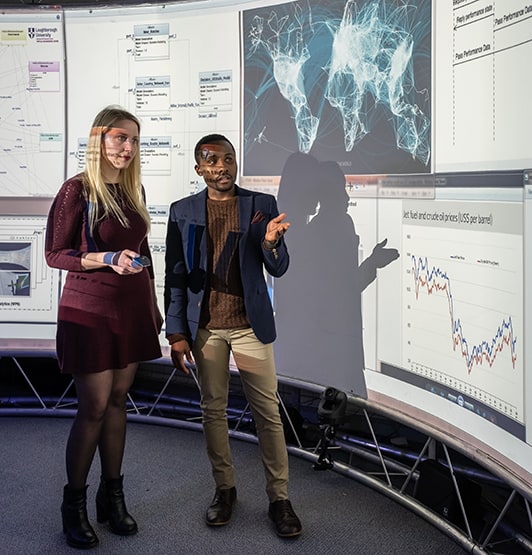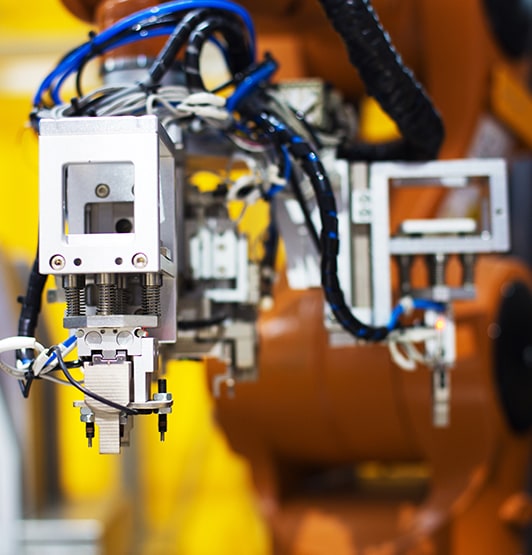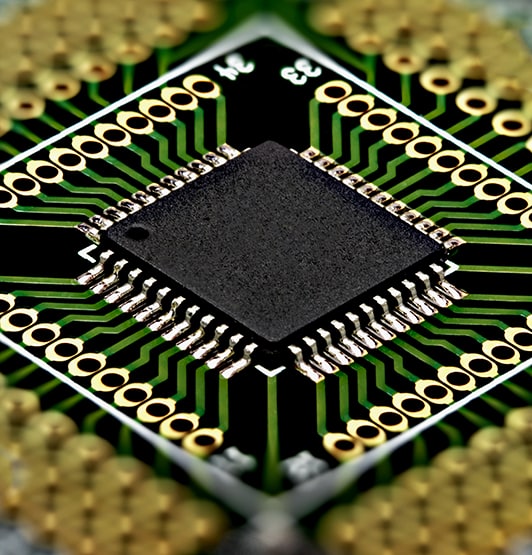Digital manufacturing
We see digital manufacturing as a strategy that, if used to connect all aspects within the product lifecycle, will allow manufacturing organisations to maximise value in their goods and operations.
Our expertise spans across the whole data journey: how you generate, collect, process and analyse data, how you ensure it is trustworthy and secure, how you implement it into processes, how you use it to make decisions, how it can enable you to monitor parts throughout the supply chain and products throughout use and end of life.
The scope of activity includes understanding the impact of design and manufacturing on product lifespan and capability, using physics models to simulate materials interactions, manufacturing processes, and how the resulting properties impact on product performance.
In addition we are exploring how the combination and integration of highly digital processes such as additive manufacturing with other emerging fields of science and technology can be used to realise radically new products, capability, and applications.
Embedded Integrated Intelligent Systems for Manufacturing
In this EPSRC Platform Grant, we lead work on the design and development of products and processes that can demonstrate adaptation and learning. The work combines expertise within manufacturing, electronic and automotive engineering and information management with strategic direction supported by project partners through the Manufacturing Technology Centre and Institute for Design Engineering.
Adaptive Informatics for Intelligent Manufacturing (AI2M)
The adoption of embedded intelligence (EI) systems developed within this project are having a major positive impact in terms of energy use, waste and sustainability. The end-of-life partners, the S2S group, will benefit from reduced scrap, allowing them to use their resources more efficiently. Through-life energy monitoring, a fundamental component of the EI system capability, will allow AIIM end-users including Ford to monitor and better manage energy consumption. Careful management of operating conditions and servicing schedules will allow circuit board life to be extended in some applications, reducing primary consumption and waste.
Synthetic aperture interferometry
We led a multi-institution and industry EPSRC-funded project which demonstrated that an array of miniature digital-holographic cameras based on mobile phone technology can combine to output large-area, surface data with a fidelity comparable to an interference microscope. The project involved close collaboration with instrument manufacturers and end users to ensure that the technology will be embedded within the UK's expanding high value manufacturing industry.
In-process measurement systems
Building on successful EPSRC projects The Light Controlled Factory, led by the University of Bath and In Jet Interferometry for Ultra Precise Electrolyte Jet Machining, we have demonstrated unique instrumentation capable of 3D digitisation at the factory scale and control of precision manufacturing processes at the microscale.
Information management tools for Industry 4.0
Since 2011, we have focused on the provision of platforms that support knowledge sharing and the use of embedded intelligence within products and processes to facilitate in-factory and supply chain related decisions. These strands of work target the timely availability of high-quality information for business decision makers. Our research has supported industrial collaborators with the specialist knowledge and supporting software services to ensure that solutions work robustly within harsh manufacturing environments.
Re-imagining engineering design
In the growing area of smart manufacturing, this project with Queen’s University Belfast and industry partners aims to create a new design methodology to generate product and manufacturing systems simultaneously, enabling a step change in UK manufacturing productivity for high value-added processes and sustainable supply chains.

Next-generation digitalisation technologies for aerospace
Within the Advanced VR Research Centre (AVRRC), we are developing next-generation digitalisation technologies, including modelling, simulation and visual analytics, to help accelerate aircraft design and production processes. RAeng and Airbus supported research includes new engineering information systems, which will be combined with digital-twin and novel immersive technologies, such as augmented and virtual reality systems, to enable engineers to predict how an aircraft design will behave at every stage of its lifecycle. A very powerful AI supercomputer, funded by Airbus, enables research into novel techniques for automated vision inspection during manufacture of future wings.
Industrial Robots-as-a-Service
We lead a major collaborative industry project to investigate the means to reduce the effort of deploying and repurposing generic off-the-shelf robots and mobile autonomous platforms and provide them with the ability to work in teams with people and other robots. The Industrial Robots-as-a-Service model aims to deliver resilient and responsive manufacturing systems enabled by rapidly deployable mobile robots, enabling more economic and sustainable manufacturing.

Reconfigurable robotics for responsive manufacture
We are part of a cross-disciplinary robotics, AI and control and automation research project developing game changing approaches to resilience in manufacturing. Together with industrial partners we are developing new algorithms that can automatically generate programme and configuration data from CAD and process data that eliminates the need for significant human input. The project also considers how to automatically configure the safety system so that it is safe and legally compliant but also implement a flexible framework.
Research capabilities

EPSRC Centre for Doctoral Training in Embedded Intelligence
The first in the UK, the Centre addresses high priority areas for economic growth such as autonomous complex manufactured products and systems, functional materials with high performance systems, data-to-knowledge solutions (e.g. digital healthcare and digitally connected citizens), and engineering for industry, life and health.